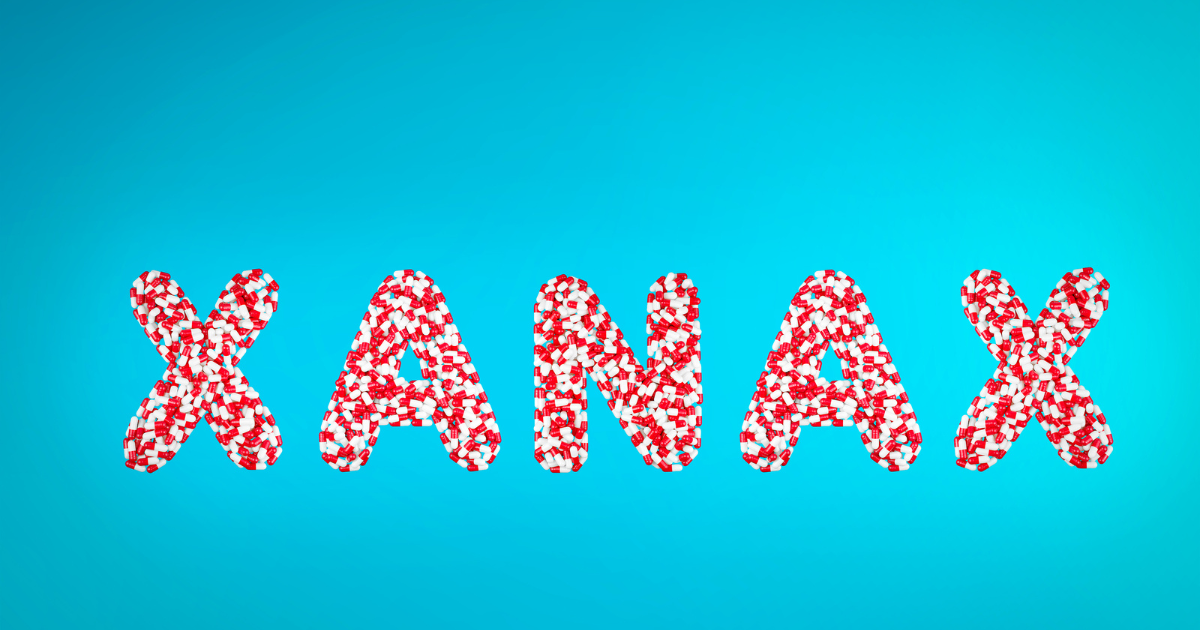Xanax, scientifically known as alprazolam, is a medication commonly prescribed to treat anxiety and panic disorders. But while it can effectively treat these conditions, it also has addictive potential. Here’s what you need to know.
To better understand Xanax, read more on our blog.
Understanding Xanax
Xanax belongs to a class of drugs called benzodiazepines, which work by enhancing the effects of a neurotransmitter called GABA in the brain. GABA has a calming effect on the nervous system, which can help relieve anxiety and panic symptoms.
The Addictive Nature of Xanax
- Dependence: Long-term use of Xanax can lead to physical dependence, where the body becomes accustomed to the drug, and withdrawal symptoms may occur if the medication is stopped abruptly.
- Tolerance: Over time, individuals might develop a tolerance to Xanax, requiring larger doses to achieve the same calming effects. This can lead to a dangerous cycle of increasing use.
- Recreational Use: Some individuals may misuse Xanax recreationally for its sedative effects, increasing the risk of addiction.
Symptoms of Xanax Addiction
Xanax addiction can manifest through a range of physical and psychological symptoms. Recognizing these signs early can lead to timely intervention and support for recovery. Here are two symptom categories of Xanax addiction:
Physical Symptoms:
- Drowsiness: Excessive fatigue or feeling unusually sleepy.
- Slurred Speech: Difficulty in talking or slurred pronunciation.
- Lack of Coordination: Struggling with motor skills, balance, or general body coordination.
- Memory Problems: Short-term memory loss or confusion about recent events.
Psychological Symptoms
- Increased Anxiety: Paradoxically, addiction may lead to heightened anxiety, opposite to the calming effects the drug is prescribed for.
- Mood Swings: Rapid or unexpected changes in emotions.
- Obsession with Obtaining the Drug: Constant thoughts or actions focused on acquiring more Xanax.
- Social Isolation: Withdrawal from friends, family, or social activities.
These symptoms can vary in intensity and might be subtle initially. If you or someone you know is experiencing these signs, it is essential to seek professional medical advice.
Risk Factors for Addiction
- Genetic Predisposition: Some individuals may have a genetic predisposition that makes them more sensitive to addiction.
- Mental Health Disorders: Those with underlying mental health issues, such as anxiety or depression, may be at a higher risk.
- Polydrug Use: Combining Xanax with other substances, such as alcohol, can increase the addictive potential.
Abuse Prevention Strategies
Preventing Xanax addiction is a critical aspect of responsible medication management. Here are tips to reduce the risk:
- Follow Physician’s Guidelines: Always take the medication exactly as the healthcare provider prescribes. Avoid raising the dose or frequency without professional medical advice.
- Communicate Openly: Discuss the medication with your healthcare provider if you feel the medication is not working or experiencing side effects. They can adjust the prescription or suggest alternatives.
- Avoid Recreational Use: Using Xanax for recreational purposes or without a prescription increases the risk of addiction.
- Monitor for Early Signs: Stay alert for signs of dependence or addiction. If you notice any unusual behavior or physical symptoms, seek professional assistance.
- Educate Yourself and Others: Understanding the risks and potential side effects of Xanax can promote responsible use. Share this information with friends or family members who may also be prescribed the drug.
- Secure Medication: Keep Xanax in a safe and secure location to prevent unauthorized access or misuse by others.
Treatment Options
Recovery from Xanax addiction is possible with professional help. Treatment may include:
- Detoxification: Medically managed detox can help manage withdrawal symptoms safely.
- Therapy: Individual and group therapy can address the root causes of addiction.
- Medication Management: In some cases, other medications may be prescribed to help with recovery.
Get Help Today!
Xanax is addictive, especially when misused or taken over an extended period. Recognizing the signs of addiction and seeking professional help early is crucial to successful recovery.
If you or a loved one is struggling with Xanax addiction, help is available. Call Landmark Recovery at 888-448-0302 to speak with a caring professional about custom treatment options to fit your needs. Recovery is possible, and the journey can begin today.

Choose Recovery Over Addiction
We're here 24/7 to help you get the care you need to live life on your terms, without drugs or alcohol. Talk to our recovery specialists today and learn about our integrated treatment programs.




